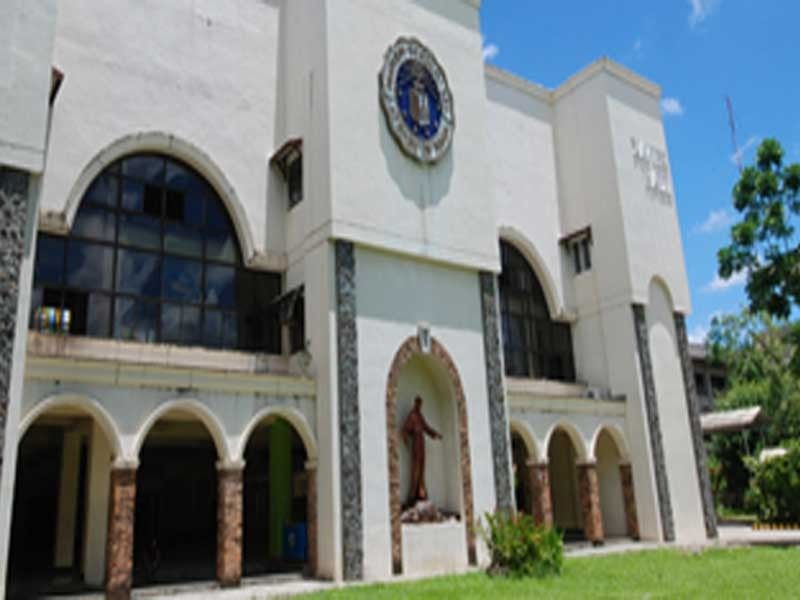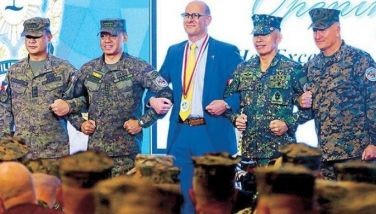Higher education students in Bicol can't tell news from paid articles — AdNU study

MANILA, Philippines — An overwhelming majority of senior high school to doctorate students in the Bicol region cannot distinguish a news item from a paid editorial article, a study from the Ateneo de Naga University (AdNU) found out.
Presented with a news article and a sponsored or branded content article on liquefied natural gas, 98.3% of the students could not spot the difference.
In fact, AdNU associate professor Margarita Fajardo said, “More students identified the branded content article as the more credible article based on confirmation bias, reputation, coverage and writing style.”
The study was presented December 9 in a webinar, “Where’s the Lie? Research Findings on Disinformation” organized by The Consortium on Democracy and Disinformation (D&D), De La Salle University Jesse M. Robredo Institute of Governance, and the Asian Center for Journalism of Ateneo de Manila University.
News is accurate, unbiased, and timely information that interests and impacts a greater number of people.
Fajardo said news articles with the label ‘branded content,’ ‘sponsored article,’ ‘sponsored content,’ ‘sponsored links’ are part of native advertising, where the brand or the sponsor which paid for the advertisement’s content creation can be directly or indirectly mentioned in the custom-created content.
Part of Fajardo’s study aimed to test students’ ability to spot the branded label content and interpret its tendency to display a biased perspective for commercial purposes.
“In fact, only one postgraduate student among 424 respondents was able to pinpoint the significance of this label in evaluating the reliability of information,” she pointed out.
The research study conducted four tests to assess civic online reasoning — the ability to freely think, act, and decide on sociopolitical issues — to 157 senior high school, 156 undergraduate, and 111 post-graduate students in Albay, Sorsogon, Camarines Sur, Catanduanes, Masbate, and Camarines Norte from February to May 2020.
Bicol HEI students struggle with debunking disinformation
The higher education institution students (HEI) from Bicol also struggled in skills related to debunking disinformation such as verifying authentic Facebook (FB) pages and differentiating facts from opinion.
When asked which of two FB posts came from the official FB page of Vice President Leni Robredo, 65.87% of the students did not consider FB’s blue check mark alongside the account name to verify authenticity.
Students evaluated the authenticity of FB accounts based on the length, completeness, number of page likes and information presented in their posts, among other factors.
Around 47% of the students could not differentiate between a factual statement by Senator Panfilo Lacson and an opinion by Senator Aquilino “Koko” Pimentel III on the Visiting Forces Agreement.
Instead, they judged which statement was more factual based on how the arguments aligned with their personal beliefs.
Participants from Masbate performed worse in verifying authentic Facebook pages and differentiating facts from opinion. Fajardo said she believes this may have been caused by poor internet access in the province compared to other regions.
“The lack of opportunity to access the internet often may have prevented the students in Masbate to develop the critical skills to evaluate online information,” she argued.
Problematic image verification skills
Meanwhile, 49% of the participants fared better in image verification, but provided a problematic explanation of why a specific photo did not match an uncredible news story about an alleged Cebu parish priest who allegedly impregnated two daughters of an associate pastor.
“People are better at detecting inconsistencies in the use of images and headlines. Students are more visual, in a way. Once they look at a particular image, they activate their critical skills on whether [the photo] aligns with the headline,” she elaborated.
However, 29% of them resorted to using logical fallacies such as prescribing what the photo should look like, or citing unethical journalism practices such as showing a suspect caught in the commission of a crime.
“The person near the suspect was not wearing [a] police suit, which [is] required of them before they [arrest] the suspect. [He] looks like a tricycle driver or [just a curious bystander], a student wrote.
“It would be better if the photo shows that the [suspects and victims] are ‘caught in the act of doing the crime,” another student responded.
Armor against disinformation
The AdNU associate professor warned that civic online reasoning is “threatened by the amount of disinformation we find on social media and the Internet in general.”
Fajardo said the study proved that it’s essential to give the students various skills and knowledge to use when they feel the need to verify the integrity of the information they encounter on the Internet.
“A combination of heuristic, systematic information processing strategies, critical thinking skills, and journalism code of ethics must be included in a media or literacy curriculum,” she said.
Part of her suggestion includes teaching students problem-solving strategies for different scenarios of disinformation on specific online platforms like FB or Twitter.
“This will be their armor against the onslaught of disinformation that prevails and will continue the World Wide Web,” she concluded.
This study on civic online reasoning was one of six research projects funded by D&D, a national network of journalists, academics, and civil society representatives.
(VERA Files is put out by veteran journalists taking a deeper look at current issues. Vera is Latin for “true.”)
- Latest
- Trending






























